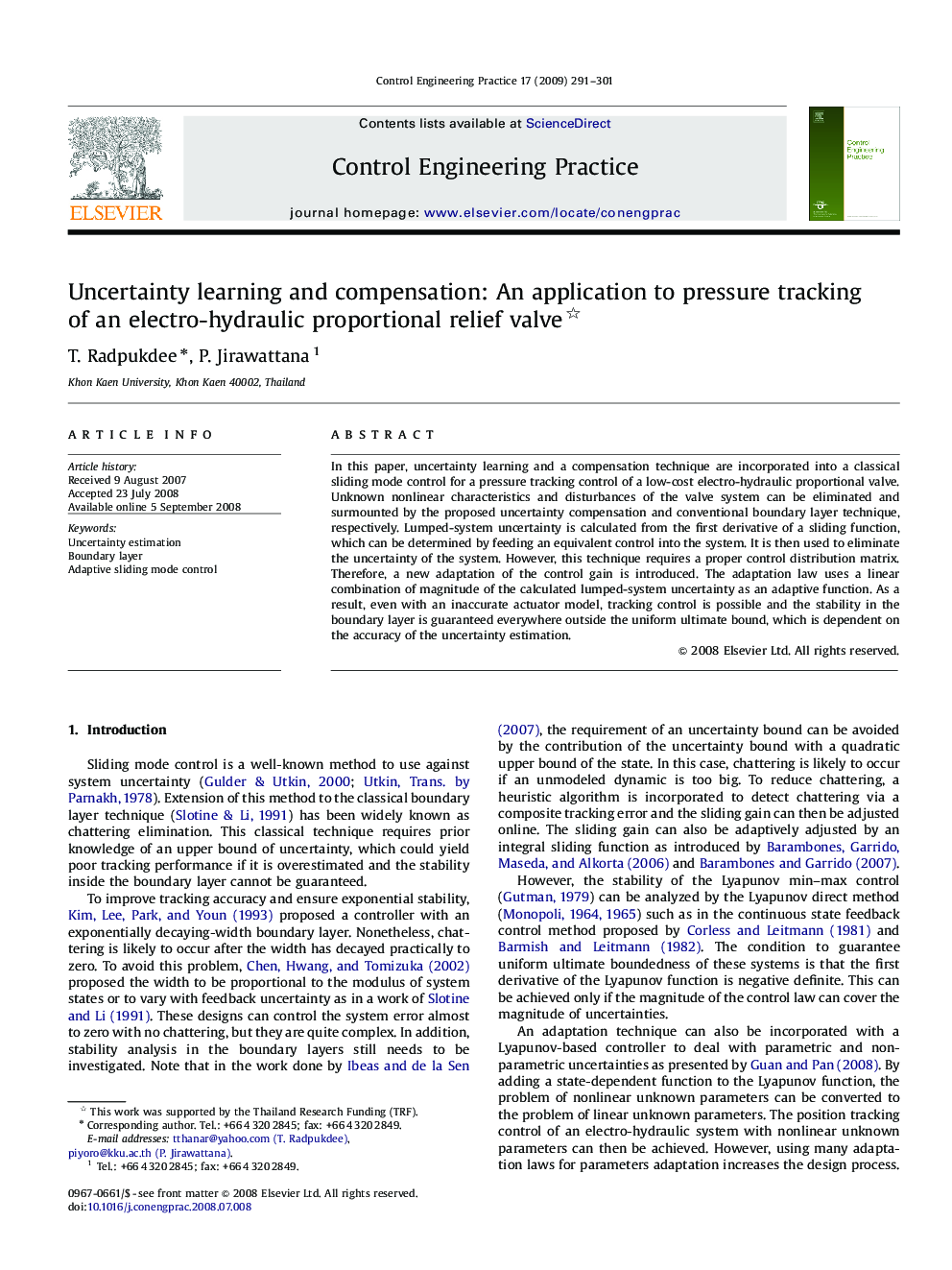| کد مقاله | کد نشریه | سال انتشار | مقاله انگلیسی | نسخه تمام متن |
|---|---|---|---|---|
| 700127 | 890831 | 2009 | 11 صفحه PDF | دانلود رایگان |

In this paper, uncertainty learning and a compensation technique are incorporated into a classical sliding mode control for a pressure tracking control of a low-cost electro-hydraulic proportional valve. Unknown nonlinear characteristics and disturbances of the valve system can be eliminated and surmounted by the proposed uncertainty compensation and conventional boundary layer technique, respectively. Lumped-system uncertainty is calculated from the first derivative of a sliding function, which can be determined by feeding an equivalent control into the system. It is then used to eliminate the uncertainty of the system. However, this technique requires a proper control distribution matrix. Therefore, a new adaptation of the control gain is introduced. The adaptation law uses a linear combination of magnitude of the calculated lumped-system uncertainty as an adaptive function. As a result, even with an inaccurate actuator model, tracking control is possible and the stability in the boundary layer is guaranteed everywhere outside the uniform ultimate bound, which is dependent on the accuracy of the uncertainty estimation.
Journal: Control Engineering Practice - Volume 17, Issue 2, February 2009, Pages 291–301